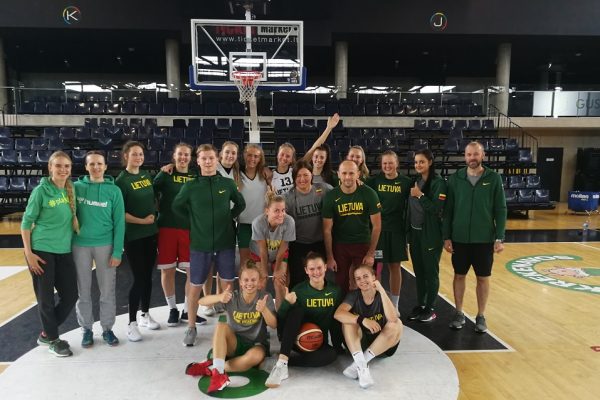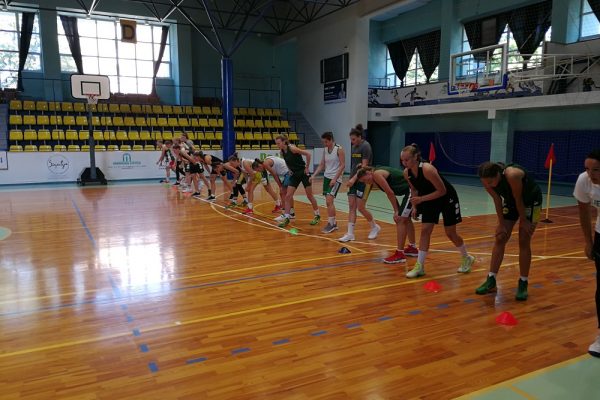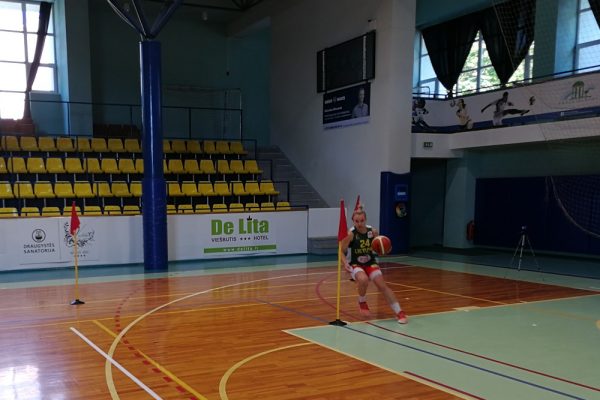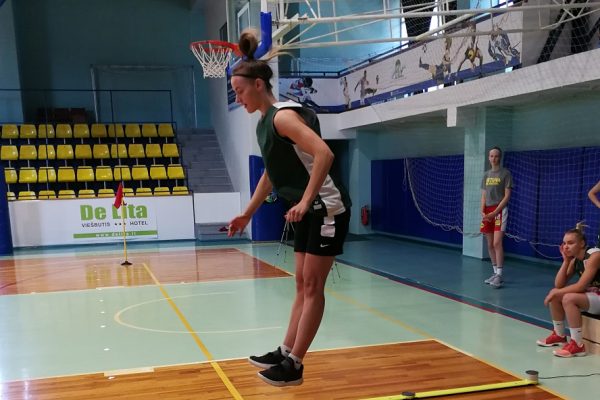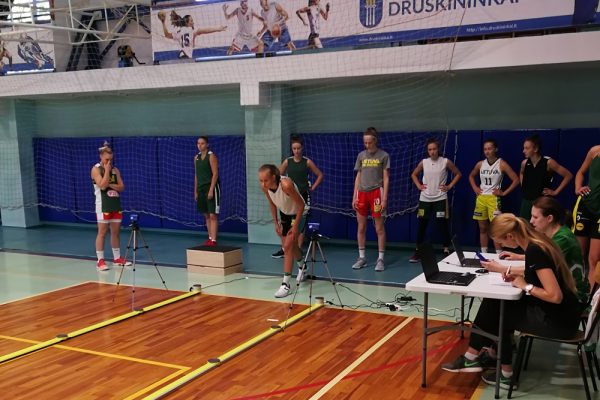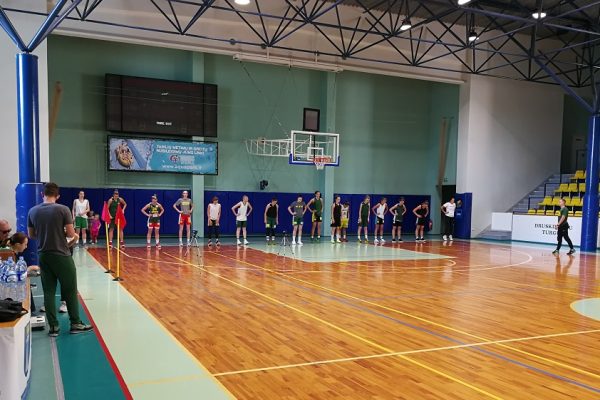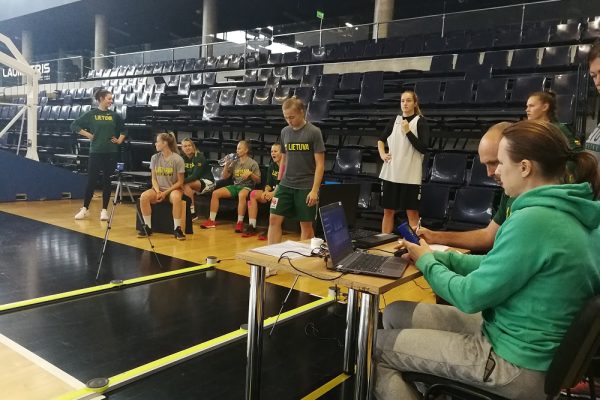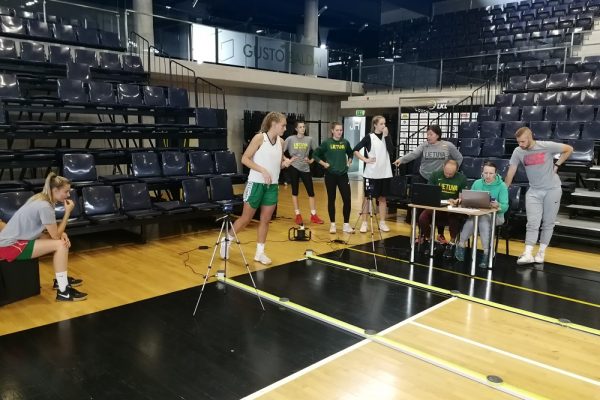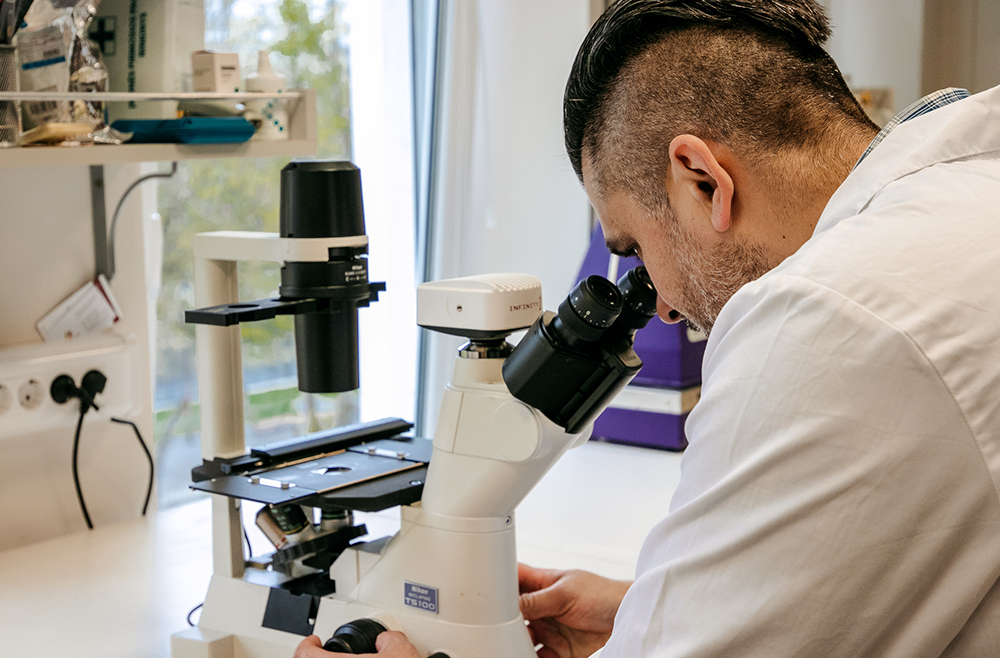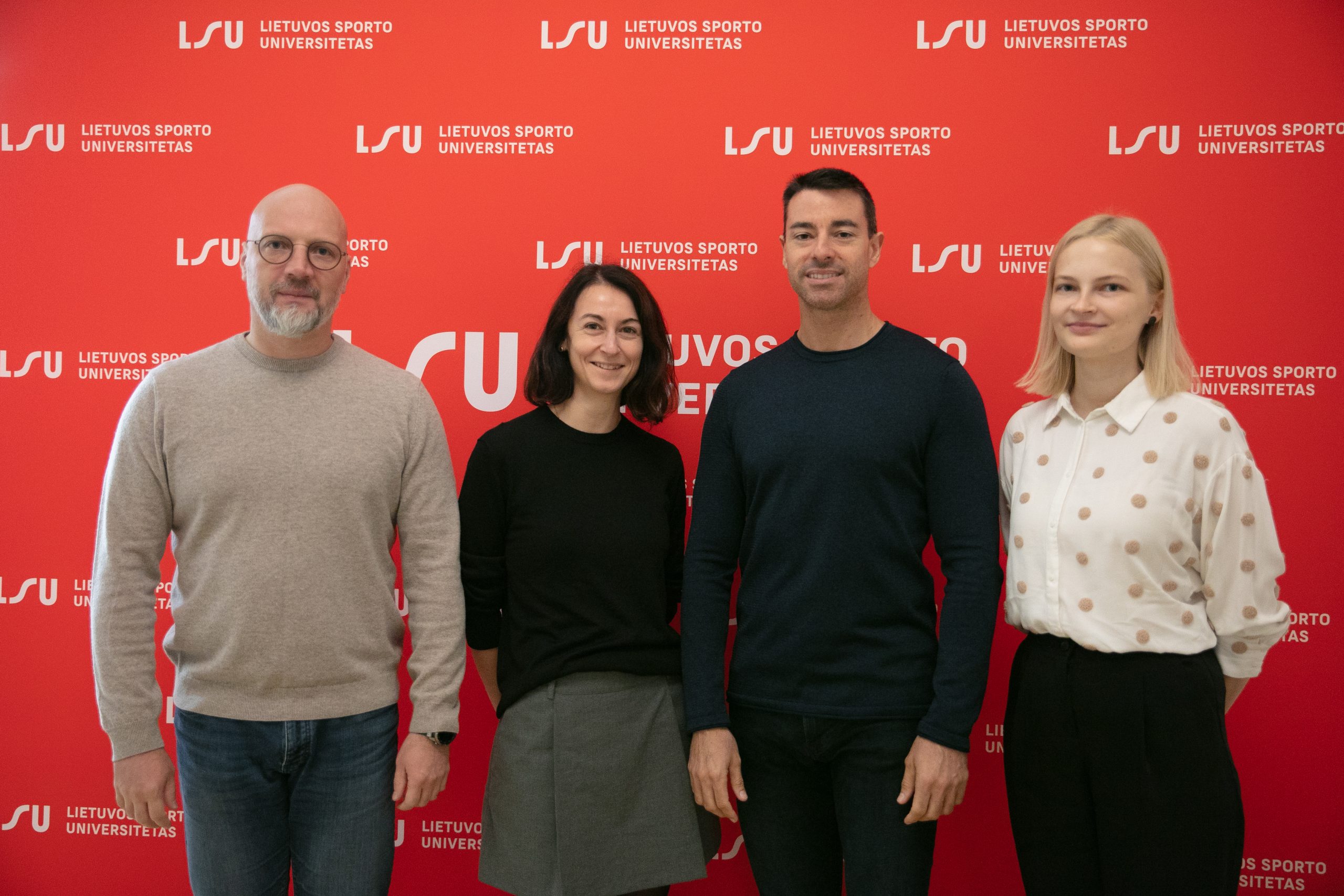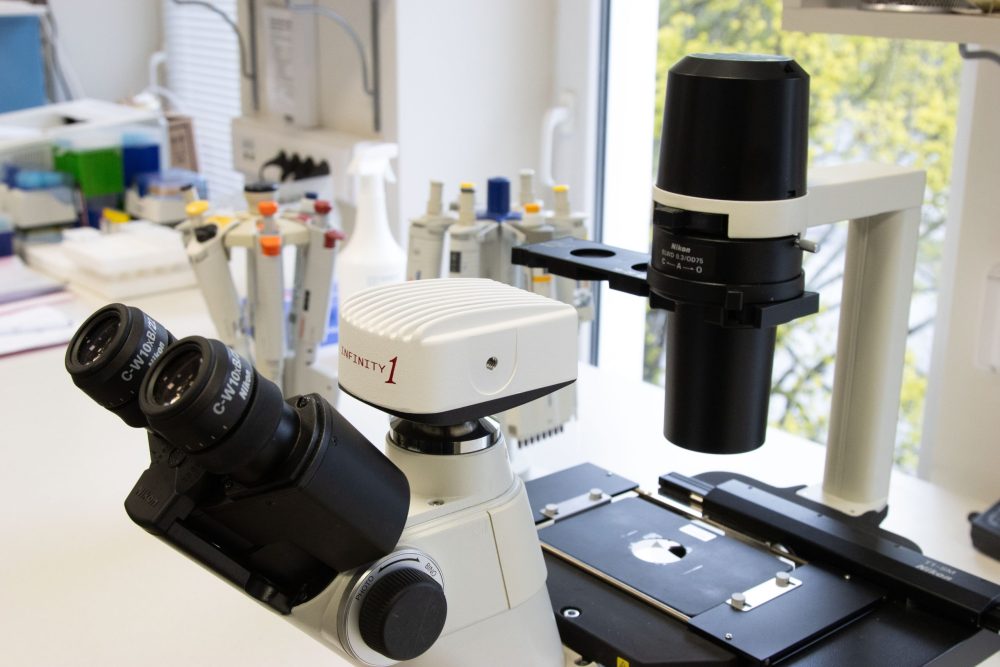This has been a successful summer for Lithuanian athletes, especially for women’s basketball teams in the European Championships. Lithuanian team lifted the FIBA U18 Women’s European Championship 2018 Division B trophy and secured Division A status. Lithuania was also among the teams who earned promotion at the FIBA U20 Women’s European Championship 2018, Division B. In Division A, Lithuanian basketball players will compete with the strongest teams of this age group. Lithuanian Sports University (LSU) specialists were among those who helped win victories for our country.
LSU researcher and basketball coach Rasa Kreivytė was an assistant to the head coach of the U20 team Egidijus Ženevičius. Both U18 and U20 teams were investigated by a PhD student Inga Lukonaitienė, who also provided recommendations in cooperation with her colleagues. The research team consisted of Prof. Dr. Sigitas Kamandulis, Dr. Daniele Conte, Assoc. Prof. Dr. Jūratė Stanislovaitienė, Dr. Henrikas Paulauskas, Assoc. Prof. Dr. Rasa Kreivytė, and PhD students Vytautas Pliauga and Inga Lukonaitienė.
“Before the championships, LSU research team measured body response to physical load and performed tests before and after the preparation cycle. All the information was provided to the coaches who could adjust and improve the plans for training sessions,” said I. Lukonaitienė.
Before and after the preparation cycle, the researchers tested athletic condition and identified the athletes’ speed, power, agility, endurance and anthropometric data and their changes after preparation. During the preparation cycle, LSU team studied physical loads and body response to them.
E. Ženevičius, the head coach of the Lithuanian U20 National Team, said that the participation of the researchers in the training process helped to better prepare for important competitions and was an interesting experience for him personally. “We constantly received the latest information on the physical fitness of the basketball players and we could plan load respectively. We were able to take decisions based not only on our intuition or experience, but also on a thorough analysis. I have no doubt that this has led us to good performance. It would be great if researchers observed basketball players throughout the season in the future,” said E. Ženevičius.
The head coach of the Lithuanian U18 National Team Dalius Ubartas supported the idea. “We carefully studied the recommendations of the researchers and applied them. We could see which players had too much physical load, and which still had room for improvement. This reflected in the championship. Due to good physical fitness and proper evaluation of the situation, we played well in the third and fourth quarters, when the rivals were the most tired and could not keep up with our speed. The participation of researchers in the training process was also very important from a psychological point of view. Girls had more confidence in themselves and in our decisions,” summarized D. Ubartas.
The assistant to the head coach of the Lithuanian U20 National Team, LSU researcher Rasa Kreivytė was glad that the University researchers shared their knowledge with basketball practitioners. “After the training session, it is very important to get information quickly and adjust the plan and physical load. In addition, we carried out surveys on a regular basis. The players used applications installed in their phones. Every morning, the girls answered questions about their general well-being and physical loads. Before each training session, the coaches could see on their phones how the players slept, how they felt, and if their muscles ached because of physical load. I think the researchers did a very remarkable job, which helped to prepare for the championship,” said R. Kreivytė.
The researchers used a variety of equipment, e. g., the “Catapult” system, which helped to calculate the load for each player and made it possible to objectively evaluate the loads for different players during the preparation cycle. The girls also measured their heart rate variability using “Elite HRV” applications and “Polar” belts every morning. In addition to these measurements, the researchers also collected samples of basketball players’ saliva in order to detect hormonal changes during the preparation time and championships. Against this background, future recommendations can be made.
LSU PhD student I. Lukonaitienė said that the research carried out and help during the preparation period is not an innovation. “The increasing possibilities to test athletes and the applicability of the research makes it possible to objectively assess athlete response to physical load and make recommendations for the development of strategies for recovery. In professional sport, researchers usually interact directly with athletes and coaches. Therefore, LSU research team decided to offer the most popular measurements in the world for the Lithuanian women’s basketball teams,” said I. Lukonaitienė.

